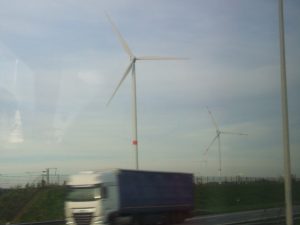The war in Ukraine has led to some disastrous consequences for the EU. After relying on Russian gas for many years, the EU are now under pressure to reassess their gas and energy supplies.
Ursula von der Leyen, the president of the European Commission, has announced a new green deal. Among the measures to take place are several regulations involving the use of Russian gas. An interest was also expressed in the establishment of hydrogen as Europe’s main renewable energy source.
Despite this, the use of hydrogen can be seen as quite problematic, as something around 1% of hydrogen produced is actually ‘clean’. The other 99% is made through the use of fossil fuels, which somewhat contradicts the point of the European green deal. This makes one wonder how ‘green hydrogen’ has become a central focus of the EU’s attempts to meet the Paris agreement.
One factor in the promotion of hydrogen as ‘climate neutral’ is lobbying, as explained by Hans Van Scharen, a researcher at the NGO Corporate Europe Observatory. His team has brought to light the prominence of industry lobbying in EU environmental decision-making, with the publication of their report ‘A gastastrophic mistake’. In this report it is revealed that the EU consults lobby groups comprised of key players in the fossil fuel industry such as Shell Oil, BP, Total, and Eni.
The consultation of such groups certainly leads one to question the validity of the European Commission’s policymaking. While the image of fossil fuels and gas is cleaned, the EU grows further and further from meeting the requirements of the Paris agreement.

Wind turbines may be useful in the hydrogen electrolysis process
On the other hand, the production of hydrogen does not always spell disaster. Although the vast majority of hydrogen is made with fuels detrimental to our climate, there are some cases where genuinely clean hydrogen can be produced, as explained by Esther Bollendorff, the gas policy expert of CAN Europe.
There is then some hope left for a climate neutral Europe, although drastic measures must be taken to combat the prevalence of fossil fuel companies in EU decision-making. Only then can it be said that hydrogen is no longer an opportunistic business enterprise for the EU, but rather a genuine move towards a climate neutral continent.




